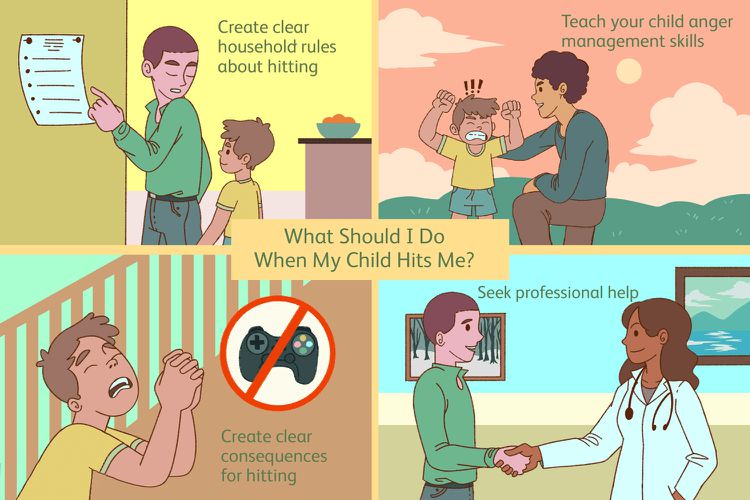Preschooler Development
What to Do When Your Child Hits You

Being hit by your toddler can be frustrating, upsetting, and overwhelming. For many parents, it can feel embarrassing or even make them question their parenting skills. They may worry that their toddler’s aggressive behavior reflects a failure on their part.
However, hitting is common among toddlers. How you respond to this behavior is crucial in stopping it. Here’s an overview of why toddlers hit and how to address it effectively.

Courtesy of Miguel Co
Why Toddlers Hit
Toddlers hit for a variety of reasons, such as:
- Struggling with emotions: They may not know how to express their feelings or manage them in a socially acceptable way.
- Limited language and impulse control: Toddlers may not have the words to express themselves or the ability to control their impulses.
- Getting needs met: They might hit when they want something, hoping the aggression will change their parent’s mind.
- Testing boundaries: If a toddler is told no, they might use hitting to try to get their way.
What to Do When Your Toddler Hits
Your response to hitting will impact whether or not the behavior continues. Here are some strategies to help manage it:
Set Clear Rules
Establish house rules about respect, making it clear that hitting, biting, and other aggressive behaviors are unacceptable. Frame these rules positively, such as saying, “Use gentle hands,” instead of simply saying, “Don’t hit.” Discuss the rules with your child so they understand the consequences of their actions. When your child hits, calmly say, “No hitting. Hitting hurts.” Consistency is key.
Enforce Consequences
If your child continues to hit after being told the rules, use consequences to help deter the behavior:
- Time-out: For some children, a time-out can be effective in helping them calm down and reflect on their behavior.
- Loss of privileges: Taking away toys or screen time can be another form of discipline. For younger children, even short periods without access to a toy can be effective.
- Restitution: Encourage your child to make amends, such as doing a small chore or drawing a picture to say sorry.
Praise Positive Behavior
Reinforcing good behavior with positive reinforcement is crucial. Pay attention when your child behaves well and praise them for using gentle hands or expressing their feelings appropriately. Use rewards like stickers or tokens to motivate them further.
Teach Appropriate Ways to Express Feelings
Instead of telling your child not to hit, give them alternatives such as “use gentle hands” or “say how you feel.” Teaching anger management skills is also important. Encourage your toddler to take deep breaths, draw a picture, or read a book when they feel upset. Talk with your child about how to handle emotions like frustration, sadness, or anger appropriately.
Avoid Physical Punishment
Spanking can confuse a child and may actually make the problem worse by teaching them that physical aggression is acceptable. Instead of using corporal punishment, model healthy ways to manage emotions and resolve conflict. Show your child how to deal with anger or disappointment in a constructive manner.
Seek Professional Help
If your toddler’s aggression is persistent or extreme, it may be time to consult a professional. Talk to your pediatrician if you’re concerned about your child’s behavior. In some cases, underlying issues like ADHD or developmental delays may be contributing to the aggression. A professional can help identify the root cause and provide strategies to address it.
By consistently applying these strategies and remaining calm, you can help your toddler manage their emotions and reduce aggressive behavior over time.
